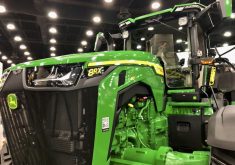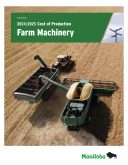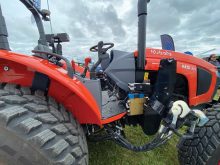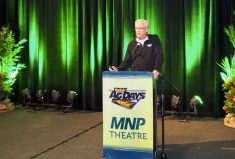For Winnipeg-based tractor manufacturer Versatile, developing and maintaining business partnerships is what allows it to keep pace with competitors.
The latest example is a partnership between Versatile, its engine supplier, Cummins, and two tech companies, Elevāt and STW Technic. The arrangement has given the tractor manufacturer a sophisticated, real-time diagnostics and support system for its 2022 tractor line.
Versatile is owned by Buhler Industries and it’s the only tractor manufacturer still operating in Canada.
Read Also
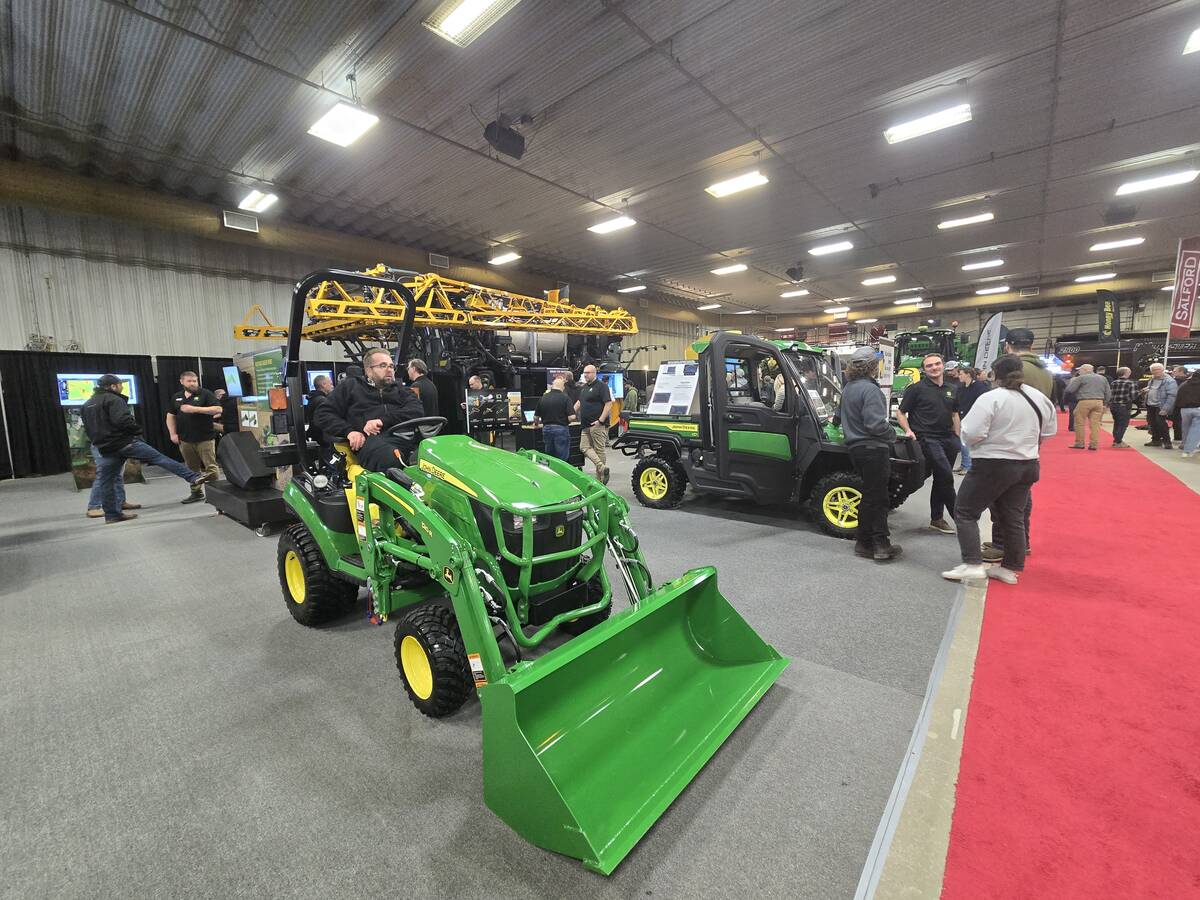
Manitoba John Deere dealers plan merger
Two retail dealership chains handling John Deere farm equipment in Manitoba say they plan to merge, bringing 13 locations under one organizational umbrella.
“One of the things that Versatile has been known for, and this goes back to the first tractors that we produced back in the 1960s, is collaboration,” says Adam Reid, Versatile vice-president of sales and marketing.
Reid says the company built its reputation on developing key partnerships with well-known industry suppliers. It began using Cummins engines when the company began building tractors in the 1960s. It also uses transmissions made by Caterpillar and hydraulics supplied by Bosch.
“It allows us to be a little bit more nimble and a little bit more flexible,” says Reid.
The company has a lot of experience in tractor manufacturing and assembly, and Reid says it is at its best when it sticks to what it’s good at.
“We’re not an engine or transmission manufacturer, but we know how to make those two systems work together to give our end users the best experience.”
So when the company wanted to add connectivity and telematics to its product line, it shopped around for quality suppliers.
“That’s a big hill to climb, especially for a company like ours,” Reid said. “So we started looking for partners that could bring that to the table for us.”
Versatile needed suppliers who understood the company vision of creating products that are simple, reliable and easy to service and maintain.
“This platform that we worked on with Elevāt and STW certainly does that,” says Reid.
The technology that Versatile has added is not new. It’s similar to the OnStar system available in many passenger vehicles, but with a built-in “time is money” sensibility.
Erron Leafloor, manager of advanced engineering with Versatile, prefers the construction industry comparison over the passenger car analogy.
“Caterpillar has a telematics system for their dozers and graders that they use to monitor what’s going on to keep a construction company up and running,” he says. “Those operators can’t waste a minute diagnosing if that machine is keeping five other machines from operating.”
Versatile began working with the software company Elevāt, while developing its telematics system, CBX. Elevāt had a pre-existing relationship with hardware company STW, so it too was soon involved. Versatile launched its CBX telematics system in March.
“The recent news is that we’ve brought Cummins into this partnership as well,” says Leafloor.
The system, which will be included in all Versatile tractors, has advanced features.
“It allows a farmer or any owner to log into a website (on their phone, tablet or laptop), and they’ll be able to see that tractor,” says Leafloor. “They’ll be able to see multiple things about it, like where it is, if they have a hired hand operating it.”
They’ll also be able to see the engine RPM to check the gear. The system has GPS, so it can tell the owner whether the employee is in the right field.
“Pretty much anything that they would see sitting in the cab on the dash, they would see on the website,” says Leafloor.
For diagnostics, if an electronic device created a fault code for something like an overheating engine, that code would be seen on the computer screen and would automatically be sent to the dealer.
“We have many stories of dealers getting a phone call from a customer saying, ‘My tractor is not doing this or not doing that, can you come take a look?” says Leafloor. In some cases, it’s something as simple as a blown fuse.
“That’s a pretty expensive call for the customer. But if the dealer had been able to log in and see that the fault code was for a fuse being blown, they could just tell the farmer to put a new fuse in. That’s a very simplistic example, but it’s also a realistic example of how this system can save a farmer a lot of money.”
The technology is ubiquitous in the new-tractor marketplace these days, but Reid shrugs when asked if he thinks his company is playing catch-up.
“History is littered with trial and error,” he says. “We’ve been able to learn from some of their mistakes and challenges they’ve had.”
By exercising patience, Reid says Versatile has been able to introduce something competitive.
“It still matches our brand hallmarks and has allowed us to catch up to the industry overall,” he says. “Are we at the pinnacle? No, absolutely not, but what we’ve introduced with our partners is definitely in line with what the expectation is of our end-user customers and the farmers that we deal with.”
But are there drawbacks to this business model? Is dealing with multiple collaborations problematic when it comes to post-pandemic supply chain issues? Reid says it’s hard to tell whether Versatile is more exposed than any other manufacturer, but all of them have had challenges.
“We liken it to playing whack-a-mole. We have suppliers that are behind for months, and then their supply chain rights itself, and then another supplier that has been sailing smoothly suddenly hits snags with their supply chain. But the entire industry has been dealing with supply chain problems for the last 18 to 24 months.”




